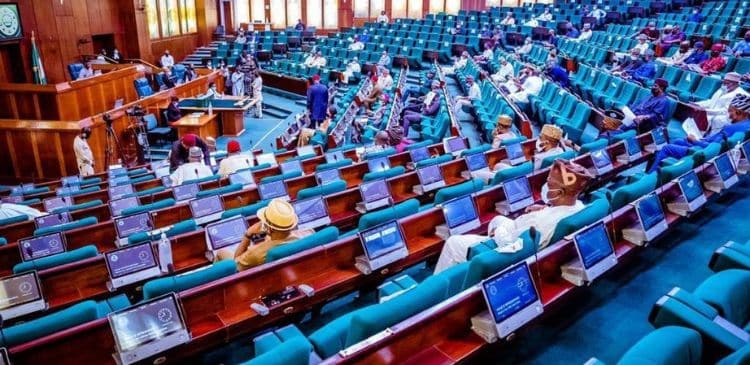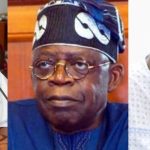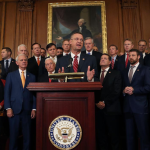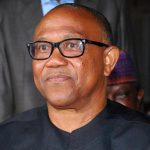Nigeria’s House of Representatives on Thursday passed the Second reading of a bill seeking to amend the Electoral Act to make voting mandatory for all Nigerians of voting age in general elections, both at the national and State levels.
The proposed legislation sponsored by the House Speaker, Tajudeen Abbas, and Daniel Asama Ago representing Bassa/Jos Federal constituency of Plateau State provides for limited and justified exemptions, as well as sanctions for unjustified failure to vote, and valid grounds for exemption.
Leading the debate on behalf of the House Speaker, Daniel Ago explained that the rationale behind the Bill rests on the urgent need to revitalize democratic participation in the country, highlighting the persistent trend of low voters turnout during elections.
According to him, low voter turnout during elections undermines the legitimacy of Nigeria’s electoral process and weakens the foundation of representative governance, arguing that making voting mandatory, will foster a stronger culture of civic responsibility, reduce electoral apathy, and increase the inclusiveness and fairness elections.
The House Deputy Speaker, Benjamin Kalu, described the Bill as a welcome development and effective for the advancement of democracy in the country. Kalu supported the provisions for sanctions, which will deny citizens certain incentives for refusal to participate in the electoral process
Citing his personal experience in Australia, Kalu said citizens who refuse to vote during elections are captured by the system, approached by the country’s tax office for explanations, after which certain privileges and incentives will be withdrawn at the completion of investigations and if the individual is found guilty
But the Deputy Speaker’s argument was met with strong opposition from Awaji-Inombek Abiante representing Andoni/Opobo-Nkoro Federal constituency of Rivers State, who questioned the incentives or privileges currently enjoyed by Nigerians that will persuade them to obey the law if it is eventually assented by the President.
Abiante argued that the proposed legislation can not get the buy-in of citizens when most Nigerians are providing electricity, water, security, and creating jobs for themselves without government support. He called for the Independent National Electoral Commission (INEC) to commit to cleaning up the Voter register, which is one of the major challenges faced during elections
For Mark Esset, the Nigerian government can not make voting mandatory for citizens when the country is still grappling with conducting elections that meet the peoples expectations. Odudoh reminded his colleagues of INEC’s promises before the 2023 general election, which motivated most young Nigerians to participate in a process that later fell short of expectations.
MUST READ: House Issues 24-hour Ultimatum To Federal Fire Service CG To Appear Before Investigative Committee
Against these arguments, lawmakers voted unanimously for the Bill to pass through Second reading
The Speaker and his co sponsor assured lawmakers that the Bill, when passed, will:
● Empower the Independent National Electoral Commission (INEC) to develop a system for tracking voter compliance and managing exemption requests without infringing on fundamental human rights.
● Promote electoral education and awareness, ensuring that citizens understand the importance and value of their vote.
● Contribute to the overall deepening of democracy in Nigeria through increased participation and legitimacy in electoral outcomes.
● Address vote-buying and other Inducement during elections.
(Editor: Ken Eseni)








